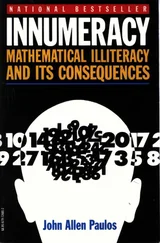John Ruskin - A Joy For Ever (and Its Price in the Market)
Здесь есть возможность читать онлайн «John Ruskin - A Joy For Ever (and Its Price in the Market)» — ознакомительный отрывок электронной книги совершенно бесплатно, а после прочтения отрывка купить полную версию. В некоторых случаях можно слушать аудио, скачать через торрент в формате fb2 и присутствует краткое содержание. Жанр: foreign_antique, foreign_home, literature_19, visual_arts, на английском языке. Описание произведения, (предисловие) а так же отзывы посетителей доступны на портале библиотеки ЛибКат.
- Название:A Joy For Ever (and Its Price in the Market)
- Автор:
- Жанр:
- Год:неизвестен
- ISBN:нет данных
- Рейтинг книги:5 / 5. Голосов: 1
-
Избранное:Добавить в избранное
- Отзывы:
-
Ваша оценка:
- 100
- 1
- 2
- 3
- 4
- 5
A Joy For Ever (and Its Price in the Market): краткое содержание, описание и аннотация
Предлагаем к чтению аннотацию, описание, краткое содержание или предисловие (зависит от того, что написал сам автор книги «A Joy For Ever (and Its Price in the Market)»). Если вы не нашли необходимую информацию о книге — напишите в комментариях, мы постараемся отыскать её.
A Joy For Ever (and Its Price in the Market) — читать онлайн ознакомительный отрывок
Ниже представлен текст книги, разбитый по страницам. Система сохранения места последней прочитанной страницы, позволяет с удобством читать онлайн бесплатно книгу «A Joy For Ever (and Its Price in the Market)», без необходимости каждый раз заново искать на чём Вы остановились. Поставьте закладку, и сможете в любой момент перейти на страницу, на которой закончили чтение.
Интервал:
Закладка:
11. Now, as you will have anticipated, I am going to address you, on this and our succeeding evening, chiefly on the subject of that economy which relates rather to the garden than the farm-yard. I shall ask you to consider with me the kind of laws by which we shall best distribute the beds of our national garden, and raise in it the sweetest succession of trees pleasant to the sight, and (in no forbidden sense) to be desired to make us wise. But, before proceeding to open this specialty of our subject, let me pause for a few moments to plead with you for the acceptance of that principle of government or authority which must be at the root of all economy, whether for use or for pleasure. I said, a few minutes ago, that a nation's labour, well applied, was amply sufficient to provide its whole population with good food, comfortable clothing, and pleasant luxury. But the good, instant, and constant application is everything. We must not, when our strong hands are thrown out of work, look wildly about for want of something to do with them. If ever we feel that want, it is a sign that all our household is out of order. Fancy a farmer's wife, to whom one or two of her servants should come at twelve o'clock at noon, crying that they had got nothing to do; that they did not know what to do next: and fancy still farther, the said farmer's wife looking hopelessly about her rooms and yard, they being all the while considerably in disorder, not knowing where to set the spare handmaidens to work, and at last complaining bitterly that she had been obliged to give them their dinner for nothing. That's the type of the kind of political economy we practise too often in England. Would you not at once assert of such a mistress that she knew nothing of her duties? and would you not be certain, if the household were rightly managed, the mistress would be only too glad at any moment to have the help of any number of spare hands; that she would know in an instant what to set them to;—in an instant what part of to-morrow's work might be most serviceably forwarded, what part of next month's work most wisely provided for, or what new task of some profitable kind undertaken; and when the evening came, and she dismissed her servants to their recreation or their rest, or gathered them to the reading round the work-table, under the eaves in the sunset, would you not be sure to find that none of them had been overtasked by her, just because none had been left idle; that everything had been accomplished because all had been employed; that the kindness of the mistress had aided her presence of mind, and the slight labour had been entrusted to the weak, and the formidable to the strong; and that as none had been dishonoured by inactivity, so none had been broken by toil?
12. Now, the precise counterpart of such a household would be seen in a nation in which political economy was rightly understood. You complain of the difficulty of finding work for your men. Depend upon it, the real difficulty rather is to find men for your work. The serious question for you is not how many you have to feed, but how much you have to do; it is our inactivity, not our hunger, that ruins us: let us never fear that our servants should have a good appetite—our wealth is in their strength, not in their starvation. Look around this island of yours, and see what you have to do in it. The sea roars against your harbourless cliffs—you have to build the breakwater, and dig the port of refuge; the unclean pestilence ravins in your streets—you have to bring the full stream from the hills, and to send the free winds through the thoroughfare; the famine blanches your lips and eats away your flesh—you have to dig the moor and dry the marsh, to bid the morass give forth instead of engulfing, and to wring the honey and oil out of the rock. These things, and thousands such, we have to do, and shall have to do constantly, on this great farm of ours; for do not suppose that it is anything else than that. Precisely the same laws of economy which apply to the cultivation of a farm or an estate, apply to the cultivation of a province or of an island. Whatever rebuke you would address to the improvident master of an ill-managed patrimony, precisely that rebuke we should address to ourselves, so far as we leave our population in idleness and our country in disorder. What would you say to the lord of an estate who complained to you of his poverty and disabilities, and when you pointed out to him that his land was half of it overrun with weeds, and that his fences were all in ruin, and that his cattle-sheds were roofless, and his labourers lying under the hedges faint for want of food, he answered to you that it would ruin him to weed his land or to roof his sheds—that those were too costly operations for him to undertake, and that he knew not how to feed his labourers nor pay them? Would you not instantly answer, that instead of ruining him to weed his fields, it would save him; that his inactivity was his destruction, and that to set his labourers to work was to feed them? Now, you may add acre to acre, and estate to estate, as far as you like, but you will never reach a compass of ground which shall escape from the authority of these simple laws. The principles which are right in the administration of a few fields, are right also in the administration of a great country from horizon to horizon: idleness does not cease to be ruinous because it is extensive, nor labour to be productive because it is universal.
13. Nay, but you reply, there is one vast difference between the nation's economy and the private man's: the farmer has full authority over his labourers; he can direct them to do what is needed to be done, whether they like it or not; and he can turn them away if they refuse to work, or impede others in their working, or are disobedient, or quarrelsome. There is this great difference; it is precisely this difference on which I wish to fix your attention, for it is precisely this difference which you have to do away with. We know the necessity of authority in farm, or in fleet, or in army; but we commonly refuse to admit it in the body of the nation. Let us consider this point a little.
14. In the various awkward and unfortunate efforts which the French have made at the development of a social system, they have at least stated one true principle, that of fraternity or brotherhood. Do not be alarmed; they got all wrong in their experiments, because they quite forgot that this fact of fraternity implied another fact quite as important—that of paternity, or fatherhood. That is to say, if they were to regard the nation as one family, the condition of unity in that family consisted no less in their having a head, or a father, than in their being faithful and affectionate members, or brothers. But we must not forget this, for we have long confessed it with our lips, though we refuse to confess it in our lives. For half an hour every Sunday we expect a man in a black gown, supposed to be telling us truth, to address us as brethren, though we should be shocked at the notion of any brotherhood existing among us out of church. And we can hardly read a few sentences on any political subject without running a chance of crossing the phrase "paternal government," though we should be utterly horror-struck at the idea of governments claiming anything like a father's authority over us. Now, I believe those two formal phrases are in both instances perfectly binding and accurate, and that the image of the farm and its servants which I have hitherto used, as expressing a wholesome national organization, fails only of doing so, not because it is too domestic, but because it is not domestic enough; because the real type of a well-organized nation must be presented, not by a farm cultivated by servants who wrought for hire, and might be turned away if they refused to labour, but by a farm in which the master was a father, and in which all the servants were sons; which implied, therefore, in all its regulations, not merely the order of expediency, but the bonds of affection and responsibilities of relationship; and in which all acts and services were not only to be sweetened by brotherly concord, but to be enforced by fatherly authority. 2 2 See note 1st, in Addenda.
Интервал:
Закладка:
Похожие книги на «A Joy For Ever (and Its Price in the Market)»
Представляем Вашему вниманию похожие книги на «A Joy For Ever (and Its Price in the Market)» списком для выбора. Мы отобрали схожую по названию и смыслу литературу в надежде предоставить читателям больше вариантов отыскать новые, интересные, ещё непрочитанные произведения.
Обсуждение, отзывы о книге «A Joy For Ever (and Its Price in the Market)» и просто собственные мнения читателей. Оставьте ваши комментарии, напишите, что Вы думаете о произведении, его смысле или главных героях. Укажите что конкретно понравилось, а что нет, и почему Вы так считаете.












